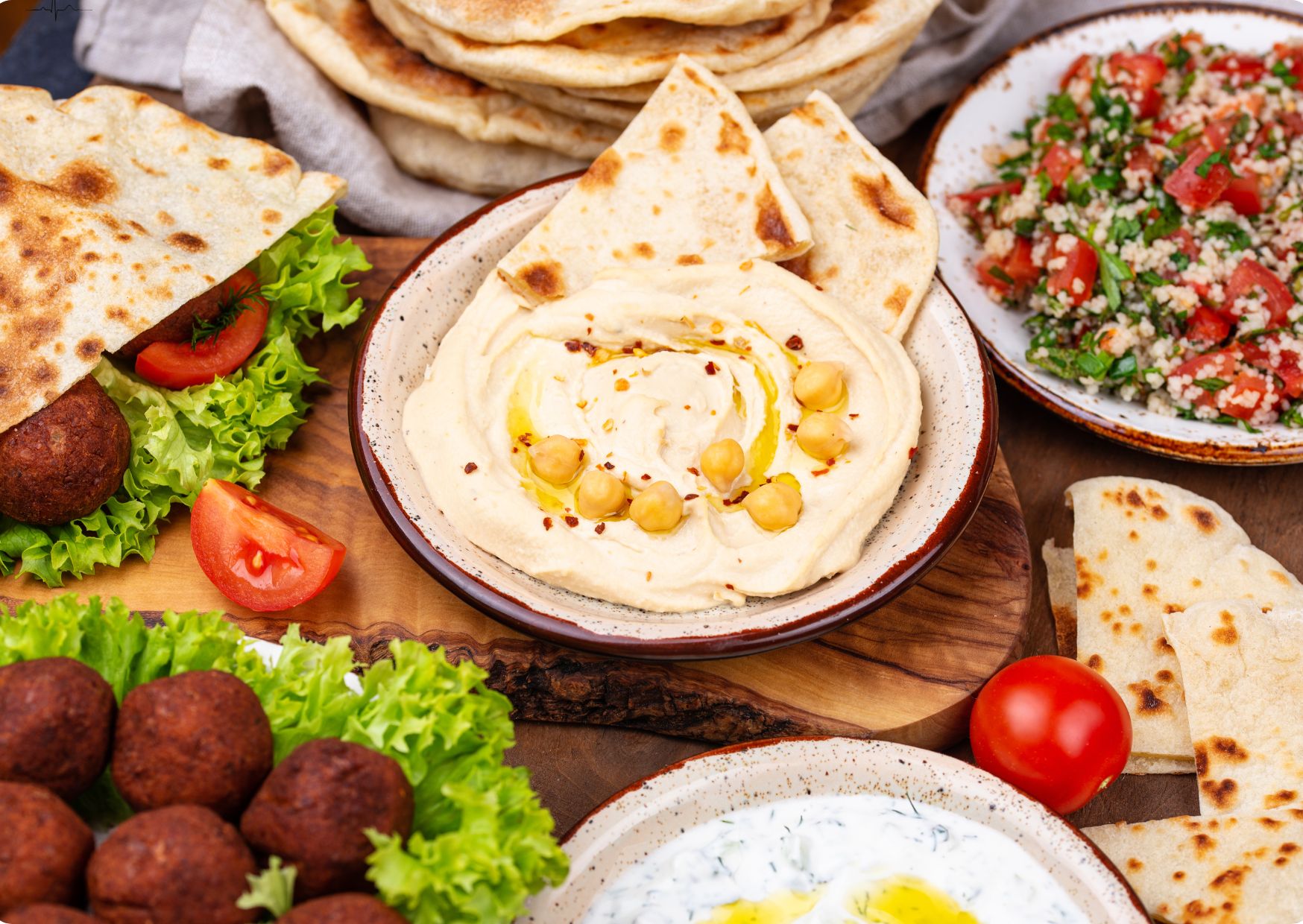South Sudanese cuisine
“The best dishes are those cooked with love”
Description
Overview
Welcome to the South Sudanese cuisine course! South Sudan, a country rich in culture and history, has a vibrant food culture that reflects its diverse ethnic groups and natural resources. This online South Sudanese cuisine course will take you on an exciting culinary journey through one of Africa’s most unique and diverse food cultures.
South Sudanese cuisine is known for its hearty, simple, and flavorful dishes that often feature staples such as millet, sorghum, rice, and a variety of meats like beef, goat, and chicken. Whether you’re cooking for your family or working in a professional kitchen, learning about South Sudanese cuisine will expand your culinary horizons and introduce you to a world of new flavors, ingredients, and techniques. In this course, you will dive into the heart of South Sudanese food, exploring traditional cooking methods and regional dishes that have been passed down through generations.
The best South Sudanese cuisine course is designed to give you a deep understanding of the cultural significance of food in South Sudan. Through hands-on cooking sessions, you will learn how to prepare beloved South Sudanese dishes like kisra, asida, bajia, and goat stew, and discover the essential ingredients and spices that define the cuisine. You will also explore how food plays a central role in social gatherings, celebrations, and daily life in South Sudan.
Whether you are interested in expanding your culinary repertoire or seeking to understand a new food culture, this South Sudanese cuisine course is ideal for food enthusiasts, chefs, and home cooks alike. The course provides expert guidance, step-by-step tutorials, and cultural insights to ensure that you are well-equipped to recreate these delicious dishes in your own kitchen. Join us today and learn how to cook authentic South Sudanese meals from the comfort of your home!
Key Features:
- Authentic South Sudanese Dishes: Learn to prepare popular dishes such as kisra, asida, goat stew, and bajia, each representing the culinary traditions of South Sudan.
- Cultural and Historical Insights: Understand the significance of food in South Sudanese culture, including its role in social gatherings, celebrations, and family life.
- Hands-On Cooking: Follow along with easy-to-follow recipes and video tutorials to master essential cooking techniques for South Sudanese dishes.
- Global Access: This online South Sudanese cuisine course is available to learners worldwide, including in the UK and beyond, offering flexibility to learn at your own pace.
- Ingredient Guide: Learn about the unique ingredients and spices that define South Sudanese cooking, and discover how to find them in your local market.
By the end of this course, you’ll not only be able to recreate South Sudanese dishes with confidence, but you’ll also develop a deeper appreciation for the country’s rich culinary heritage.
Description
Why Take the South Sudanese Cuisine Course?
The cuisine of South Sudan is as diverse and rich as its people, with an array of flavors and textures that make it a culinary experience like no other. From the bustling streets of Juba to rural villages across the country, food is an essential part of life, uniting people and preserving cultural traditions. The best South Sudanese cuisine course offers a unique opportunity to explore this rich culinary landscape, learning how to prepare traditional dishes while also understanding the cultural and historical context in which they evolved.
South Sudanese cuisine is heavily influenced by the country’s agricultural practices and natural resources. The diet of the South Sudanese people is largely based on locally grown ingredients such as sorghum, millet, and maize, along with fresh vegetables and a variety of meats. Cooking techniques such as steaming, boiling, and roasting are commonly used to prepare these wholesome ingredients.
In this online South Sudanese cuisine course, you will explore the unique ingredients and techniques used in South Sudanese cooking. The course will teach you how to prepare delicious, traditional dishes like kisra (a flatbread made from sorghum), asida (a dense porridge), bajia (fried snacks made from chickpea flour), and goat stew (a flavorful stew that showcases the rich flavors of local meats). These are just a few of the mouthwatering dishes you will learn to prepare as part of the course.
What Will You Learn in This Course?
Staple South Sudanese Dishes:
- Kisra: This traditional flatbread made from sorghum is a key element of South Sudanese cuisine. It is often served alongside stews and soups and is the perfect accompaniment to a variety of dishes.
- Asida: A hearty, dense porridge made from sorghum or millet, often served with soups or stews. You will learn how to prepare asida to the perfect texture and flavor, ensuring it complements your main dishes.
- Goat Stew: Learn how to prepare goat stew, a flavorful and aromatic dish that is often enjoyed during celebrations and family gatherings. This dish uses a combination of spices, vegetables, and tender meat to create a rich, savory stew.
- Bajia: A popular South Sudanese snack made from chickpea flour and spices, bajia is deep-fried to create a crispy, crunchy treat. You will learn how to make this delicious snack from scratch.
Exploring South Sudanese Ingredients:
- Sorghum and Millet: These grains are staples in South Sudanese cuisine, and you will learn how to use them to create a variety of dishes, from flatbreads to porridge.
- Goat Meat: Goat meat is a popular protein in South Sudanese cooking. The course will teach you how to prepare tender, flavorful goat meat in stews, roasts, and other dishes.
- Vegetables and Spices: South Sudanese dishes often feature fresh, seasonal vegetables and aromatic spices like cumin, coriander, and garlic. Learn how to combine these ingredients to create vibrant, flavorful meals.
Traditional South Sudanese Cooking Techniques:
- Steaming and Boiling: Learn how to prepare dishes like asida and kisra through steaming and boiling, techniques that preserve the natural flavors and nutrients of the ingredients.
- Grilling and Roasting: Discover the art of grilling and roasting meats, such as goat or beef, to achieve the perfect texture and taste.
- Frying: The course will also teach you how to fry dishes like bajia, a popular street food that is crisp on the outside and soft on the inside.
Cultural Significance of South Sudanese Food:
- Food as a Social Connector: Food in South Sudan is more than just sustenance – it is a key part of social gatherings and celebrations. You will learn how food brings people together in South Sudanese culture, from family dinners to community feasts.
- Traditional Meals and Celebrations: Explore the role of food in South Sudanese holidays, weddings, and other special occasions, and understand the cultural significance of the dishes served during these events.
Benefits of Taking This Course:
- Authentic South Sudanese Recipes: Learn to cook traditional dishes like kisra, asida, goat stew, and bajia using authentic methods and ingredients.
- Cultural Insight: Gain a deeper understanding of the role of food in South Sudanese culture and how food traditions have been passed down through generations.
- Broaden Your Culinary Skills: Master new cooking techniques and discover how to work with traditional South Sudanese ingredients.
- Flexible Learning: This online South Sudanese cuisine course offers flexibility, allowing you to learn at your own pace, from the comfort of your own kitchen.
This Course Best Fits For
The South Sudanese cuisine course is ideal for:
- Culinary Enthusiasts: If you’re passionate about food and eager to explore African cuisines, this course is a great opportunity to learn about South Sudanese cooking.
- Aspiring Chefs: Professional chefs looking to expand their knowledge of African cuisine will benefit from this course, gaining expertise in traditional South Sudanese dishes.
- Home Cooks: Whether you’re cooking for your family or hosting friends, this course will teach you how to create delicious South Sudanese meals that everyone will love.
- Cultural Explorers: If you have an interest in the food traditions of different cultures, this course will provide valuable insights into South Sudanese culinary heritage.
Requirements
To take the South Sudanese cuisine course, you will need:
- Basic Cooking Equipment: A stove, pots, pans, and basic kitchen utensils.
- Access to Ingredients: The course will guide you on where to find essential South Sudanese ingredients such as sorghum, millet, goat meat, and chickpea flour. If you don’t have access to these ingredients locally, we will suggest suitable alternatives.
- A Passion for Cooking: An enthusiasm for learning and trying new recipes will help you get the most out of this course.
Career Path
Upon completing the South Sudanese cuisine course, you’ll have a deep understanding of South Sudanese culinary traditions, which can open up several career opportunities:
- African Cuisine Expert: With knowledge of South Sudanese cuisine, you can specialize in African cooking, offering your expertise in restaurants, catering, or private chef services.
- Food Blogger or YouTuber: Share your passion for South Sudanese cuisine through blogs, social media, or YouTube, connecting with a global audience.
- Restaurant Owner/Chef: Open a restaurant or catering business focusing on South Sudanese and African dishes, offering authentic culinary experiences to customers.
Course FAQ
1. Do I need prior experience to take the course?
- No, the course is designed for beginners, although experienced cooks can also benefit from learning about South Sudanese cuisine.
2. What equipment do I need?
- Basic kitchen tools such as a stove, oven, and utensils are all you need. Specific cooking methods will be explained in the course.
3. How long will it take to complete the course?
- The course is self-paced, but most students complete it in a few weeks. You can revisit the content as needed.
4. Can I take the course anywhere?
- Yes, this online South Sudanese cuisine course is available worldwide, including in the UK, so you can take it wherever you are.

- LevelAll Levels
- Last UpdatedJanuary 13, 2025
Student Ratings & Reviews

